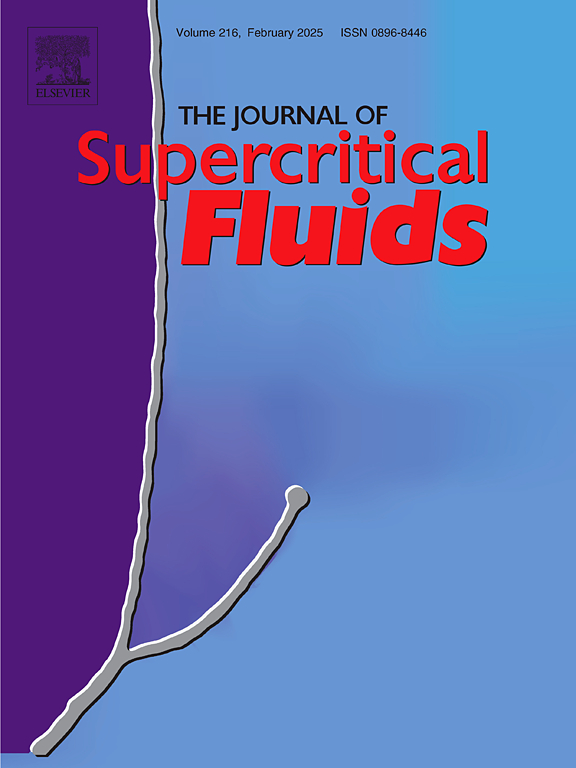Advances in chemical recycling of polyolefins by hydrothermal liquefaction in supercritical water: A comprehensive review
IF 4.4
3区 工程技术
Q2 CHEMISTRY, PHYSICAL
引用次数: 0
Abstract
Plastic waste, particularly polyolefins such as polyethylene (PE) and polypropylene (PP), poses a persistent environmental challenge due to their chemical inertness and extensive use in packaging and consumer products. Conventional recycling methods, including mechanical and chemical approaches, face substantial limitations, especially for mixed or contaminated waste streams. Hydrothermal liquefaction (HTL), and specifically supercritical water liquefaction (SCWL), has emerged as a promising green alternative for converting polyolefins into valuable oils and chemicals. SCWL operates above the critical point of water (≥ 374 °C, ≥ 22 MPa), where water exhibits unique transport and solvent properties that facilitate radical-mediated depolymerisation. Optimised conditions (425 – 450) °C, (15 – 60) min, ≥ 22 MPa, can yield up to 95 wt% oil. Critical challenges remain in understanding reaction kinetics, refining process parameters, and managing additives and impurities in post-consumer plastics. This review identifies these knowledge gaps and outlines prospective research directions to advance SCWL as a sustainable component of a circular plastic economy.
超临界水热液液化聚烯烃化学回收研究进展综述
塑料废物,特别是聚烯烃,如聚乙烯(PE)和聚丙烯(PP),由于其化学惰性和在包装和消费品中的广泛使用,对环境构成了持续的挑战。传统的回收方法,包括机械和化学方法,面临着很大的限制,特别是对于混合或污染的废物流。水热液化(HTL),特别是超临界水液化(SCWL),已经成为将聚烯烃转化为有价值的油和化学品的一种有前途的绿色替代方案。SCWL在水的临界点(≥374°C,≥22 MPa)以上运行,此时水表现出独特的运输和溶剂性质,有利于自由基介导的解聚合。优化条件为(425 - 450)°C, (15 - 60) min,≥ 22 MPa,产油量高达95 wt%。关键的挑战仍然是了解反应动力学,精炼工艺参数,以及管理消费后塑料中的添加剂和杂质。本综述确定了这些知识差距,并概述了未来的研究方向,以推动SCWL作为循环塑料经济的可持续组成部分。
本文章由计算机程序翻译,如有差异,请以英文原文为准。
求助全文
约1分钟内获得全文
求助全文
来源期刊

Journal of Supercritical Fluids
工程技术-工程:化工
CiteScore
7.60
自引率
10.30%
发文量
236
审稿时长
56 days
期刊介绍:
The Journal of Supercritical Fluids is an international journal devoted to the fundamental and applied aspects of supercritical fluids and processes. Its aim is to provide a focused platform for academic and industrial researchers to report their findings and to have ready access to the advances in this rapidly growing field. Its coverage is multidisciplinary and includes both basic and applied topics.
Thermodynamics and phase equilibria, reaction kinetics and rate processes, thermal and transport properties, and all topics related to processing such as separations (extraction, fractionation, purification, chromatography) nucleation and impregnation are within the scope. Accounts of specific engineering applications such as those encountered in food, fuel, natural products, minerals, pharmaceuticals and polymer industries are included. Topics related to high pressure equipment design, analytical techniques, sensors, and process control methodologies are also within the scope of the journal.
 求助内容:
求助内容: 应助结果提醒方式:
应助结果提醒方式:


